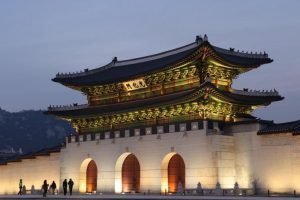Father Alfred Mawadri, a Ugandan Comboni missionary, talks about his vocation journey and the challenges he has faced in his pastoral work.
I was fortunate to have loving parents. My father was a man of integrity and strength. My mother was a wonderful person. She was compassionate in her words and actions and instilled Christian values in her children. Her capacity for love had a profound influence on me. She passed away in 1994, leaving a void in my life that has never been filled.
Over time, however, I grew closer to my younger siblings, caring for them and providing them with the same love and support that my mother had given them. A strong bond developed between us as a result; we supported each other and did the household chores together. It was as if we were one soul. At the time, I could not have imagined that my missionary vocation would one day lead me to leave them behind.
Our extended family has been Catholic for many decades. My uncle, Father Santino Kadu, was one of the first priests of the Diocese of Arua in north-west Uganda. I never knew him as he died before I was born, but my parents and many others spoke highly of him. He was a constant presence in the family and there was a photograph of him in the living room of our house.
Our parish in Moyo was one of the first in northern Uganda. Founded in 1917 by the Comboni Missionaries, it was still run by them when I was an altar boy. I admired the missionaries for all their hard work. They were wonderful with the people, especially the young people. The parish youth group was led by Father Aladino Mirandola, an Italian missionary who came to Uganda in 1964 and passed away in 2018. Although he was quite old when I met him, he brought joy wherever he went.
If you had a problem or a burden on your heart, you went to him and his words would magically make it disappear. I thought to myself, ‘How wonderful it would be to be like him!’
In August 1988, my cousin William Nyadru was ordained as a Comboni priest in Moyo. I was overjoyed and announced to everyone at the celebration that he was my cousin and the son of my aunt Katerina. He looked like a hero in his white robe. At the end of the celebration, I told Fr Aladino that I wanted to be like him.
Three years later, on 25 October 1991, Fr William, who had been assigned to the Moroto mission in Uganda’s Karamoja subregion, was found dead in an isolated spot. His body was lying face down in the grass. A bullet had passed through his heart and exited through his back. His motorcycle was securely parked nearby and nothing had been stolen, suggesting that the local witch doctors may have ordered their warriors to kill a random person on a motorcycle to avert an impending catastrophe.
Fr William’s body was buried in Moyo and I served as an altar boy at his funeral. I looked at the coffin, which had been placed in the same spot where Fr. William had prostrated himself on the day of his ordination. This convinced me that his death was a sacrifice. At the end of the service, Father Aladino put his arm around me and said, “Our Christian faith leaves us in no doubt that William did not die in vain. We can be sure that the Lord will bring many gifts through his sacrifice.” I whispered, “I will take his place.”
A year later, when I started secondary school, the idea of following in Fr. William’s footsteps faded. Like any other student with dreams of a bright future, I focused on my studies. Wanting to become an engineer, I opted to study physics, chemistry and mathematics.
Towards the end of my studies, I attended a series of weekend retreats organised by Christian groups. At one of these, each participant was asked to take a piece of paper from a box containing biblical texts and reflect on it. I was given a verse from the Gospel of Matthew: ‘Jesus saw a man named Matthew sitting in the tax office and said to him, “Follow me.” He stood up and followed him.”
I was tempted to put it down and pick up another piece of paper, but something inside me stopped me. For the next hour, I fought vigorously against that text, which soon became a clear voice… And I lost the battle.
A few weeks later, I joined the Comboni Missionaries. I began my missionary training in August 2000 and, five years later, made my first religious profession. I was then sent to Lima, Peru, to study theology, and I was ordained as a priest in my hometown of Moyo in January 2012. Father Aladino’s joy knew no bounds that day. When he told me that I had kept my promise, I replied, “Father William will be my guiding star for the rest of my life.”
In May 2012, I was assigned to Holy Trinity Parish in Old Fangak, in the Diocese of Malakal in South Sudan, where I worked with the Nuer people. The area is called Al-Suud, an Arabic word meaning ‘barrier’ or ‘obstruction’. It is home to the world’s largest swamp and is one of the most remote and impoverished places on the continent. There were no roads in the Old Fangak mission area and we had no cars, motorcycles or bicycles. We had to walk through swampy areas to get from one community to another. Furthermore, we had no mobile phones and only a weak internet connection in the parish centre.
During our pastoral visits, we knew we wouldn’t be returning for several days, so we had to rely on the generosity of the locals and accept whatever food they offered us. The high hopes that accompanied South Sudan’s independence in 2011 were quickly shattered, and the subsequent conflict caused many people to relocate within the country or seek refuge in neighbouring countries. Witnessing all this has been—and still is—a difficult test for me. However, I have always found sufficient reasons to keep going. The Nuer people have taught me patience, humility, prudence, trust and, above all, the importance of working together to overcome difficulties. Good relationships are the missionary’s most important tool in a situation of initial evangelisation.
I am currently assigned to Moroyok as a formator, preparing our candidates for the postulancy. This ministry is different from parish ministry, with its own challenges and joys, because I see the future of the congregation in these young candidates. I continue to believe and hope that the Word of God that I am sowing in this land, which Saint Daniel Comboni loved so much that he gave his life for it, will flourish and bear fruit.









